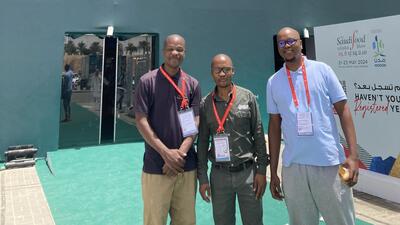Trade facilitation brings significant development gains
The Doha Round, launched in 2001, has become less ambitious over the past several years. Important negotiations on agriculture, industrial trade, services and many other subjects at the heart of international negotiations could not be finalized, to the dismay of developing countries, in particular the poorer ones and notably those in Africa. These countries had expected that the conclusion of this Round would deliver significant progress with regard to what they stood to gain and which made it a true Development Round.
However, World Trade Organization (WTO) member countries have been unable for several years to overcome all barriers and challenges in order to reach the conclusion of this Round. Now, on the eve of the WTO’s Bali Ministerial Conference, member countries seem ready to unblock the situation regarding one specific and crucial issue: trade facilitation.
Recently, a number of voices have been raised to encourage member countries to move forward and finalize this agreement. Among these voices are the presidents of multilateral development banks who made this same call during their last meeting in Washington, D.C.
The reasons behind this mobilization and advocacy for the conclusion of this agreement on trade facilitation at the next WTO Ministerial Meeting are many and varied.
The simplification and the harmonization of international trade rules and procedures, the WTO’s definition of trade facilitation, are essential for at least two reasons. Firstly, improved trade facilitation has a significant effect on trade and global growth. Indeed, several studies have shown that losses due to the inefficiency of border procedures are estimated at 5% of gross domestic product (GDP). Moreover, a 1% reduction in global trade costs could increase global income by US$ 40 billion. Africa as a whole and intra-African trade could also benefit from improvements in trade facilitation. Indeed, it is believed that a 5% reduction of time spent at borders could trigger a significant 10% increase in intra-regional trade.
Along with this rapid increase in income and trade, trade facilitation has important effects on developing countries over the long run. Today, there is broad consensus that many developing countries must get out of the trap of commodities and of the rentier state model (whereby a state gets all or most of its national revenues from the renting of local resources to foreign customers) through a major economic transformation. This issue is at the heart of the strategies and development plans of numerous countries and multilateral institutions.
The African Development Bank has set as its main strategic objectives the structural transformation of African economies and the transition towards new productivity levels in the years to come. Several avenues for such a transformation are being discussed, notably integration into global value chains. However, the success of this connection will depend on rapid improvements in trade facilitation, which will in turn ensure that developing countries will be able to deliver goods and services in a timely manner, thus sustaining the smooth and uninterrupted functioning of global value chains.
These elements explain the importance the African Development Bank has accorded to the expansion of trade facilitation activities over the past several years. These activities involve the development of regional infrastructure on which nearly US$ 12 billion has been invested over the past five years. The Bank has also made significant efforts to support the capacity-building efforts African countries have been making regarding trade facilitation.
In short, trade facilitation is crucial to the development of trade and the growth of income in several countries. The conclusion of an agreement on this issue could significantly boost trade and international cooperation. Let us hope WTO member countries will hear these different calls and reach an agreement on trade facilitation during their next Ministerial Meeting in Bali.













